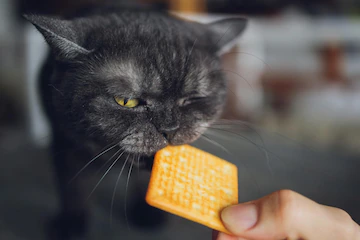Do Cats Like Ice Water? Exploring Feline Hydration Preferences
Cats, like all living creatures, require proper hydration to maintain optimal health. Adequate water intake is essential for maintaining body temperature, aiding digestion, flushing out toxins, and ensuring the proper functioning of their organs. Dehydration in cats can lead to various health problems such as urinary tract issues, kidney disease, and even life-threatening conditions.
As cat owners, we want to ensure our feline friends are well-hydrated, and part of this involves providing them with water that is both safe and appealing. One topic that has sparked debate among cat owners and experts is whether or not it’s suitable to offer ice water to cats. Some argue that ice water encourages cats to drink more, while others claim that it could lead to discomfort or even health issues.
This article aims to explore this topic in-depth, shedding light on the pros and cons of offering ice water to your cat, and helping you make an informed decision based on your cat’s individual preferences and needs.
Understanding cats’ natural water consumption habits
Wild cat ancestors and water sources
To better understand domesticated cats’ water preferences, it’s helpful to examine the habits of their wild ancestors. Cats originated from desert-dwelling species, such as the African wildcat, which had to adapt to arid environments with limited water sources. These wildcats relied mainly on the moisture content of their prey to meet their hydration needs. As a result, they developed a low thirst drive and a high tolerance for water scarcity.
Domesticated cats and indoor water sources
Domesticated cats have inherited their ancestors’ low thirst drive, which can sometimes lead to inadequate water intake, especially for those on dry food diets. Unlike their wild counterparts, domestic cats rely on their owners to provide water sources within their environment. It’s crucial to consider a cat’s natural instincts and preferences when determining the best way to encourage proper hydration. Offering water at various temperatures, including ice water, can help cater to individual preferences and mimic the variability of water sources found in nature.
How temperature affects a cat’s water intake
Cats’ sensitivity to temperature
Cats are known for their sensitivity to temperature changes, which can influence their preferences for food and water. Although cats might not be as picky as humans when it comes to water temperature, they do have preferences, and these preferences might impact their willingness to drink.
The role of temperature in water intake
Temperature plays a significant role in a cat’s water intake, as it can affect the taste, freshness, and appeal of the water. Cats may be more inclined to drink water that is slightly cooler than room temperature, as it can taste fresher and more appealing. However, this preference may vary from cat to cat.
Ice water vs. room temperature water preferences
While some cats may enjoy the refreshing sensation of ice water, others may be put off by the extreme cold. Some cats might prefer water that is slightly cooler than room temperature, while others may not exhibit any preference at all. It’s essential to observe your cat’s behavior and habits when offering different water temperatures to determine their personal preferences and ensure they are consuming enough water to stay hydrated.
The potential benefits of ice water for cats
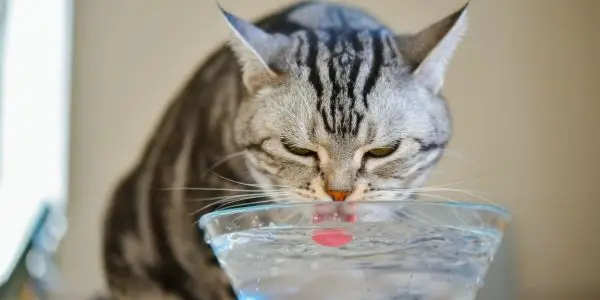
Encouraging hydration during hot weather
During hot weather, ice water can be particularly appealing to cats. The cold water can help cool them down and encourage them to drink more, which is essential for preventing dehydration during high temperatures. Offering ice water can be a practical way to increase your cat’s water consumption and keep them comfortable in the heat.
Providing mental stimulation through novelty
Cats are curious creatures, and the novelty of ice water may pique their interest. Ice cubes floating in the water can provide mental stimulation and encourage your cat to investigate and interact with their water dish. This interaction can lead to increased water consumption, promoting proper hydration.
Cooling effect on the body
When cats consume ice water, the cooling effect can help regulate their body temperature, especially during hot weather. This can be particularly beneficial for cats with thick fur or those that are prone to overheating. The cold water can help them feel more comfortable and maintain a healthy body temperature.
The potential drawbacks of ice water for cats
Sensitivity to cold causing discomfort
Some cats may be sensitive to the cold temperature of ice water, which can cause discomfort and deter them from drinking. Cats with dental issues or a history of tooth sensitivity may find ice water particularly painful. In these cases, offering ice water might do more harm than good, as it could discourage your cat from hydrating properly.
Dental issues related to extreme temperatures
Just like humans, cats can experience dental problems related to extreme temperatures. Consistently consuming ice water can potentially exacerbate dental issues or cause tooth sensitivity. If you notice your cat reacting negatively to cold water, it’s essential to provide water at a more comfortable temperature to ensure they continue to drink enough.
Possible risk of a sudden change in body temperature
While the cooling effect of ice water can be beneficial during hot weather, there’s a potential risk of causing a sudden drop in your cat’s body temperature. This sudden change can lead to discomfort or, in extreme cases, shock. It’s crucial to monitor your cat’s reaction to ice water and adjust the temperature accordingly to prevent any adverse effects on their health.
Tips for promoting healthy hydration habits in cats
Offering various water sources
Providing multiple water sources throughout your home can encourage your cat to drink more by appealing to their natural instinct to search for water. Having access to multiple water dishes can also help prevent competition for resources if you have multiple cats in your household.
Experimenting with different water temperatures
As each cat may have its own preferences when it comes to water temperature, try offering water at varying temperatures to determine what your cat likes best. By catering to their individual preferences, you can encourage them to drink more and stay properly hydrated.
Utilizing water fountains for continuous water movement
Cats are often attracted to moving water, as it simulates the natural flow of water sources found in the wild. Investing in a cat water fountain can encourage your cat to drink more by providing them with a constant source of fresh, moving water.
Cleaning and maintaining water dishes regularly
Clean water is essential for promoting healthy hydration habits in cats. Be sure to clean your cat’s water dishes regularly to prevent the buildup of bacteria and maintain water freshness. This will help ensure that your cat is more likely to drink the water provided.
Monitoring your cat’s water intake
Keep an eye on your cat’s water intake to ensure they are consuming enough water to stay hydrated. If you notice any changes in their drinking habits or suspect dehydration, consult your veterinarian for advice on how to best address the issue.
Final Thoughts
When considering whether to offer ice water to your cat, it’s essential to weigh the potential benefits and drawbacks. Ice water can encourage hydration during hot weather, provide mental stimulation, and help regulate body temperature. However, it may also cause discomfort in some cats, exacerbate dental issues, or lead to a sudden change in body temperature.
Ultimately, the decision to offer ice water to your cat should be based on their individual preferences and needs. It’s important to observe your cat’s behavior and habits when providing water at different temperatures, and to adjust accordingly. By paying attention to your cat’s unique needs and preferences, you can create a comfortable and healthy hydration environment that promotes their overall well-being.
Frequently Asked Questions
How much water should a cat drink daily?
The amount of water a cat should drink daily varies depending on factors such as their size, diet, activity level, and health. As a general rule, a cat should consume approximately 1 ounce of water per pound of body weight per day. Cats on wet food diets typically consume more water from their food, while cats on dry food diets require more water intake from external sources.
No products found.
How can I tell if my cat is dehydrated?
Signs of dehydration in cats may include lethargy, sunken eyes, dry gums, loss of skin elasticity, and decreased appetite. To check for dehydration, gently pinch the skin on the back of your cat’s neck and release it. If the skin quickly returns to its original position, your cat is likely well-hydrated. If the skin takes longer to return to its normal position, your cat may be dehydrated. If you suspect your cat is dehydrated, consult your veterinarian for guidance.
What factors affect a cat’s water consumption?
Factors that can affect a cat’s water consumption include diet, age, activity level, health, environmental temperature, and individual preferences. Cats on dry food diets typically need to consume more water from external sources, while older cats or those with certain health conditions may require more water intake. Additionally, cats may drink more water during hot weather to stay cool and hydrated.
Can I give my cat flavored water or other liquids?
While it might be tempting to offer flavored water or other liquids to encourage your cat to drink more, it’s best to stick to plain, fresh water. Flavored water or other liquids may contain additives, sugars, or artificial ingredients that can be harmful to your cat’s health. If you’re looking for ways to encourage your cat to drink more water, try experimenting with different water temperatures or offering water from a fountain instead.
Should I be concerned if my cat is not drinking enough water?
If your cat is not drinking enough water, it can be a cause for concern, as dehydration can lead to various health issues. Monitor your cat’s water intake and overall behavior for any changes that might indicate dehydration. If you suspect your cat is not getting enough water, consult your veterinarian for advice on how to best address the issue and promote proper hydration.

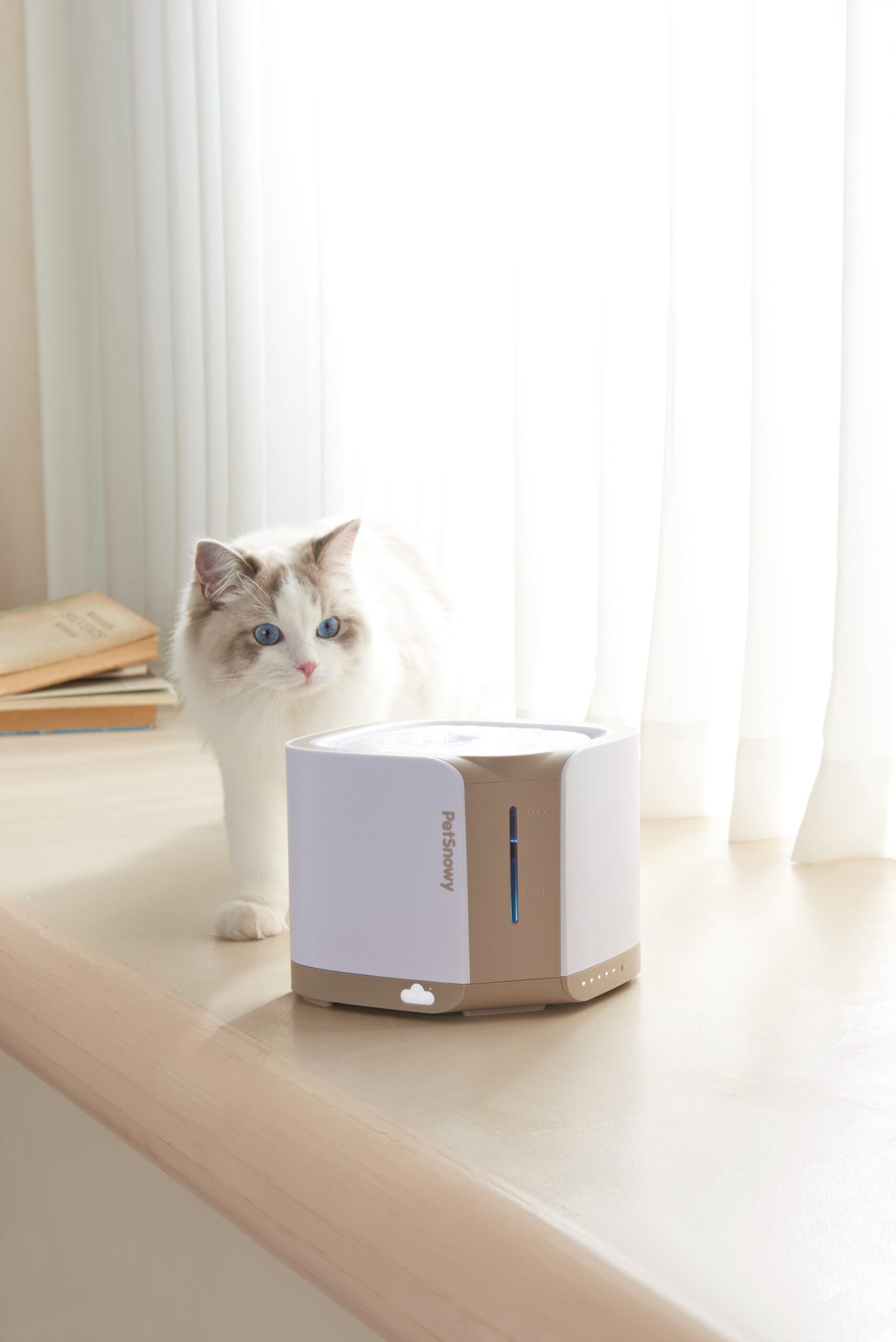

![Why Does My Cat Like To Smell My Breath? [4 Reasons]](https://www.warmlypet.com/wp-content/uploads/2023/01/Why-Does-My-Cat-Like-To-Smell-My-Breath.webp)
![Why Does My Cat Keep Pooping Outside the Litter Box? [5 Things You Can Do]](https://www.warmlypet.com/wp-content/uploads/2023/01/senior_cat_not_using_litter_box-1024x548-1-768x411.webp)
